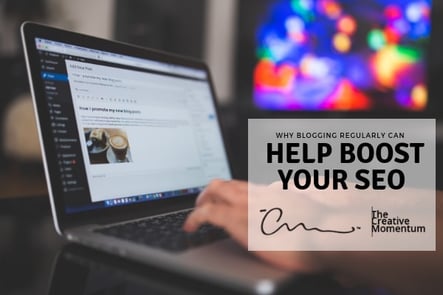
There’s a long history to the changes Google has made to its algorithm over the years, but in 2018, SEO best practices suggest that ranking high on search engine results pages (SERPs) boils down to relevancy and user intent. In other words, Google’s aim is to deliver high-quality pages that best match the user’s search.
What is User Intent?
Think of search intent as the reason why a user conducts a specific search in the first place. They could be looking to reach a specific website (known as a navigational search query), gather information (informational), or make a purchase (transactional).
Imagine you want to update your website. You take to Google and enter a search query, using different keywords depending on where you are in the process. For example, you might search for:
- New website trends
- How to design a website
- Website design agency near me
Users searching with each of these queries are going to have very different expectations for the results they want to see (and which ones they ultimately click). The first search is most likely used by someone early in their information gathering stage. The second is a later-stage search used by someone gathering detailed information around each of the steps involved in the web design process. And lastly, someone searching for an agency “near me” is much closer to purchase and looking for service providers. Google’s algorithm tries to predict which type of information best matches what you’re searching for so they can serve you the most relevant results.
How Can Blogging Improve SEO?
One of the best techniques that businesses can use to reach that elusive first page is to provide helpful content for their buyers via a blog. So, in effect you’re optimizing for user intent by creating pages of content that answer your user’s questions. And the better you are at optimizing your blog posts for intent, the more relevant and qualified traffic you’ll attract to your website. In fact, companies that blog 16 or more times a month report nearly 3.5x more traffic than companies that post 4 or fewer a month.
Blogs have been around since the dawn of the internet, and while they began mostly as personal online journals, they’ve evolved into a legitimate way for business to connect with their audience. Blogging helps to build trust and credibility with prospects and can be used to position yourself as the trusted authority on a particular subject.
Blogging keeps your website updated with fresh content
As mentioned earlier, search engines like Google aim to provide a positive user experience. They want to provide searchers with the most up-to-date information. Having a “freshness factor” can have a positive influence your search ranking. If you’re consistently writing high-quality content, search engines will recognize you as a credible resource and index your site more often. The more often your site is indexed, the more likely prospects will be able to find your site.
Blogs increase the amount of time users spend on your site
Users who arrive on a blog post page from a search query are more likely to spend a minute or so on page to read (or at least skim) the post - as opposed to someone who lands on a page with significantly less text.
Although search engines won’t admit that dwell time is directly correlated to your quality score, it does signify that your content is useful. If a searcher clicks on your link and bounces right back to Google, it tells them that your content didn’t answer their question. Conversely, if a user clicks your search result and spends several minutes on the page, perhaps even bouncing around pages on your website, it reiterates to the search engine that your site helped answer their question. Thus, your page is far more likely to be delivered in future results again and possibly even move up the rankings.
A blog can be used to create internal links
Internal links are links that connect one page to another within your website. Unlike backlinks, which depend on other reputable sites linking to your content, internal links are under your control. And you should be using them to spread authority throughout the pages of your website.
Search engines like internal links because they help users understand your navigation and they describe to search engine spiders how your pages are connected. This is the theory behind content clusters. Content clusters use a more deliberate site architecture to organize and link URLs together to help more pages on your site rank in Google -- and to help searchers find information on your site more easily.
Blogs give you the opportunity to build backlinks
Backlinks, also known as inbound links, are external links back to your content from other websites. You can think of them as the online equivalent to testimonials. The more testimonials you have, the more likely someone is to buy from you. In the same vein, the more backlinks you have, the most likely search engines are to consider you a credible resource and give you higher search rankings.
How to Use Blogging to Boost Your SEO
Create a blog content strategy
Create a strategy to cover the topics your buyer personas find important. A good place to start is the questions that your sales or customer support team gets asked frequently. Use those questions to come up with topics for your blog.
Think back to the different types of intent-based search (particularly informational and transactional) and align your blog content to the buyer’s journey. Make sure you have content that helps move your users from the awareness stage, on to consideration, and finally to decision and purchase.
Optimize your blog posts for SEO
You want to make it easy for the spiders to crawl or index your site, so make sure to use best practices when it comes to optimizing your content. Start out targeting long-tail keywords. These are more highly-targeted keywords that provide a lower search volume, yet deliver higher-quality traffic to your website. Use the long-tail keyword in:
- body copy (make it feel natural, not stuffed)
- title tag
- headers
- URL
- meta description
- Image alt text
Share and promote your content
Once you’ve written and optimized your blog posts, make sure to provide social sharing links for your readers and promote your blog posts through email and social media.
Blogging is a great way to build a connection with your audience while producing the the valuable content that search engines love. The additional pages of high-quality content help to boost your SEO while engaging your website visitors.
If developing a regularly updated blog is not a part of your current marketing strategy, it’s never too late to get started. Give us a call, we’ll be happy to help!

